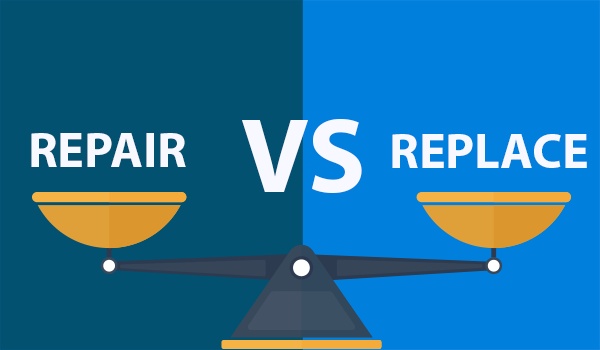When the heat of summer sets in, having a functional air conditioning system is essential for staying relaxed and comfortable. But what happens when your air conditioning system breaks down or stops working efficiently? Should you invest in a new system or simply repair the old one? It can be a difficult decision to take, but in this blog post, we will explore the factors to consider when deciding whether to repair or replace your air conditioning system.
Cost
One of the major things to consider when deciding whether to replace or repair an air conditioning system is cost. While a repair may seem like the less expensive option at first glance, it's important to consider the long-term cost. An older air conditioning system may be more prone to breakdowns and require frequent repairs, leading to higher costs over time. In contrast, investing in a new air conditioning system may be more expensive upfront but can save you bucks in the long run by providing more efficient cooling and requiring fewer repairs.
Age of the System
The age of your air conditioning system is another factor to consider when deciding whether to repair air conditioning or replace it. A well-maintained air conditioning system can last anywhere from 10 to 15 years, but beyond that, repairs become more frequent and costly. If your air conditioning system is approaching the end of its lifespan, it may be more cheaper to replace it with a newer, more efficient system rather than continuing to make costly repairs.
Energy Efficiency
Another important factor to consider when deciding whether to replace or repair an air conditioning system is energy efficiency. Newer air conditioning systems are much more energy-efficient than older models, which means they use less energy to provide the same level of cooling. This can translate into great savings on your energy bills over time. If your current air conditioning system is older and not very efficient, investing in a new system may be a smart decision. To get the best quality AC services and products, contact USAC.
Environmental Impact
In addition to the cost and efficiency considerations, it's also important to think about the environmental impact of your air conditioning system. Older air conditioning systems may use refrigerants that are harmful to the environment, such as chlorofluorocarbons (CFCs). Newer air conditioning systems use more environmentally friendly refrigerants, such as hydrofluorocarbons (HFCs). Investing in a new air conditioning system can help reduce your carbon footprint and facilitate a healthier planet.
Maintenance and Repairs
Finally, it's important to consider the maintenance and repair history of your air conditioning system. If your system has required frequent repairs or has not been properly maintained, it may be more cost-effective to invest in a new system rather than continuing to make repairs. A new air conditioning system will likely require less maintenance and be more reliable than an older system that has not been well-maintained.
In conclusion, deciding whether to repair or repair your air conditioning system can be a difficult decision. Factors such as cost, age, energy efficiency, environmental impact, and maintenance and repair history should all be considered when making this decision. Ultimately, the choice will depend on your individual circumstances and priorities. If you're unsure whether to repair or replace your air conditioning system, consult with a professional HVAC technician who can help you make an informed decision. If you are looking for the best AC or AC services, connect with USA Air Conditioning Services.


No comments yet